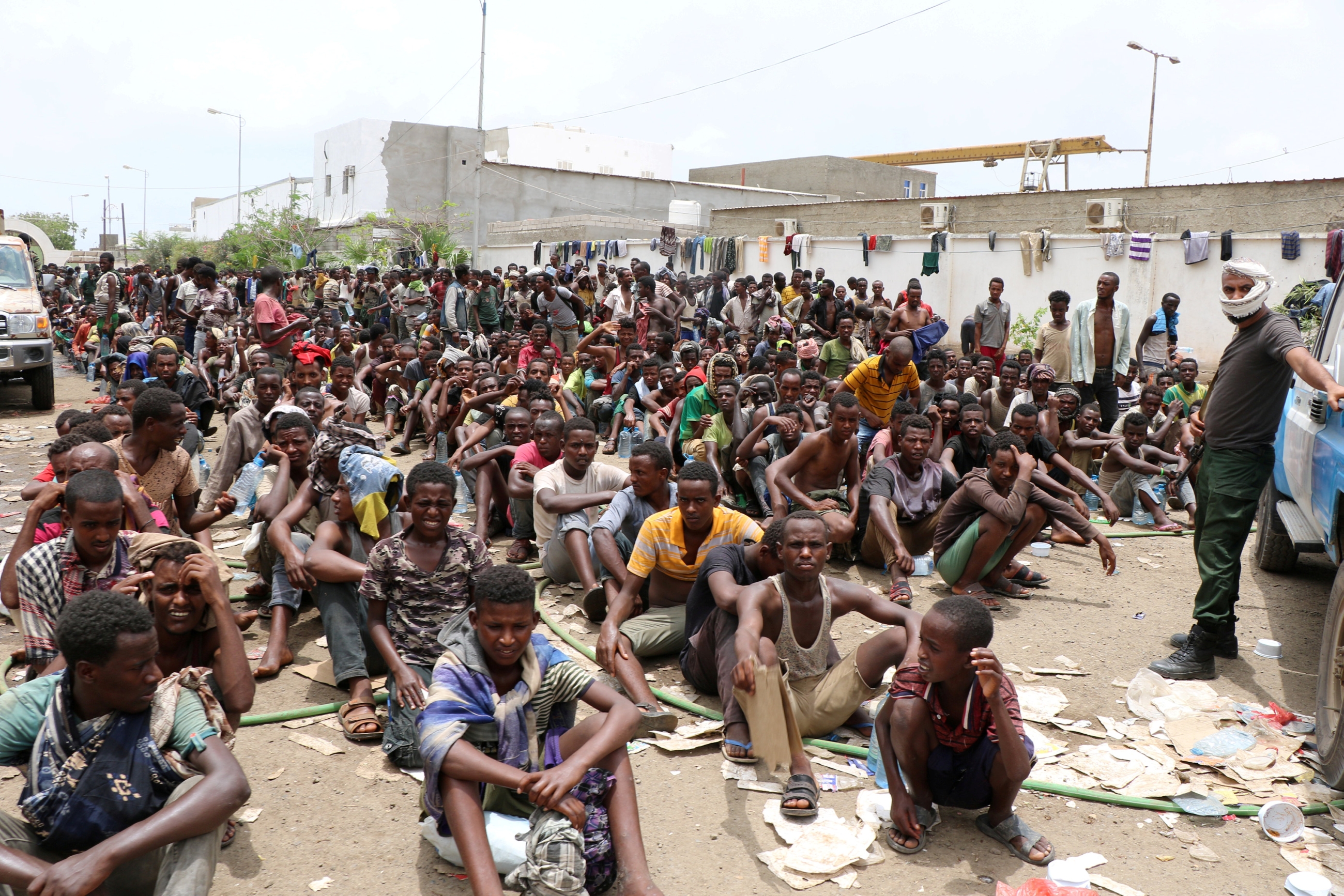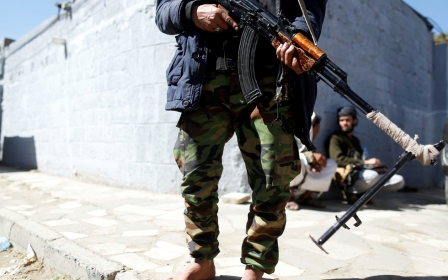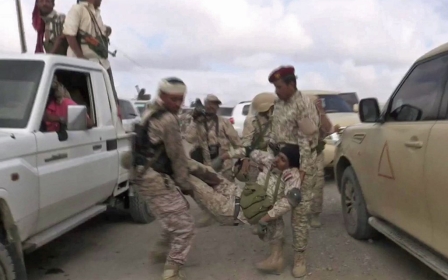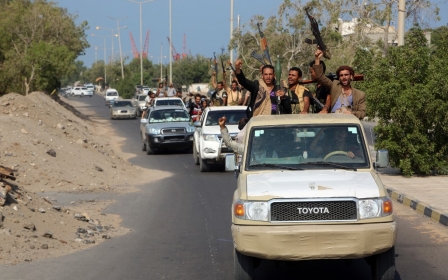Held in a stadium under the sun: Ethiopians rounded up in Yemen

Yemeni authorities have rounded up about 3,000 migrants, predominantly Ethiopians, in the south of the country, "creating an acute humanitarian situation," the UN migration agency (IOM) said on Friday.
The migrants are held in open-air football stadiums and in a military camp, it said in a statement.
"IOM is deeply concerned about the conditions in which the migrants are being held and is engaging with the authorities to ensure access to the detained migrants," the International Organisation for Migration said.
Mohammed Nour, housed in a disused football stadium in Aden, recently took the well-worn migrant route from his native Ethiopia, hoping Yemen would be a temporary stop en route to Saudi Arabia.
We're stuck out here under the sun
- Abdullah Nour, migrant
"I don't want to work in Yemen. I want to work in Saudi Arabia," he told the AFP news agency at the makeshift camp.
New MEE newsletter: Jerusalem Dispatch
Sign up to get the latest insights and analysis on Israel-Palestine, alongside Turkey Unpacked and other MEE newsletters
While most of the 1,789 migrants in the stadium are adult men, they also include 389 boys and 28 girls under the age of 18, according to the IOM.
The youngest is believed to be 11 years old.
Fellow Ethiopian migrant Abdullah Nour said he'd been at the camp for two days.
"We've had problems with the soldiers, with the police. There's no food or water," he said.
"There’s no shade. We're stuck out here under the sun."
The detentions began on Sunday in the city of Aden and the neighbouring province of Lahj, which are under the control of the internationally recognised government backed by Saudi Arabia and the United Arab Emirates.
Houthi rebels control Sanaa, the capital, and other major urban centres.
Both sides are under international diplomatic pressure to implement a United Nations-sponsored ceasefire deal agreed last year in Sweden and to prepare for a wider political dialogue that would end the four-year-old war.
Thousands of migrants arrive in Yemen every year, mostly from the Horn of Africa, driven by drought and unemployment at home and lured by the wages available in the Gulf.
Middle East Eye delivers independent and unrivalled coverage and analysis of the Middle East, North Africa and beyond. To learn more about republishing this content and the associated fees, please fill out this form. More about MEE can be found here.




